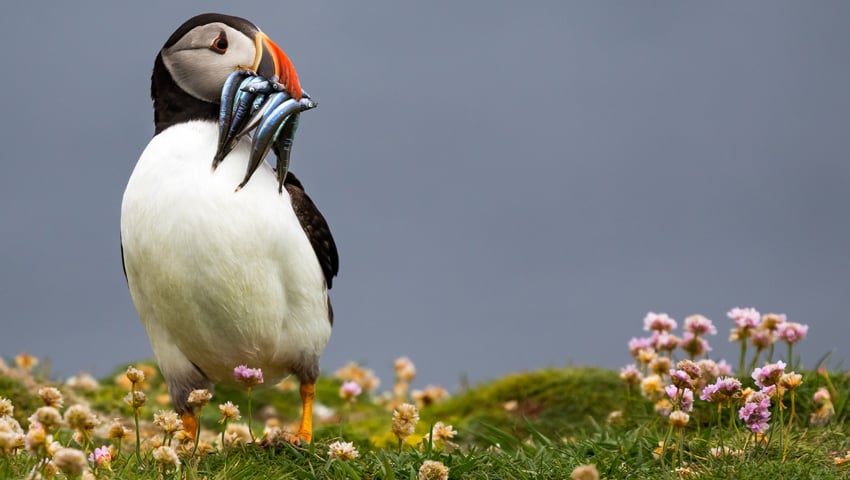Wildlife enthusiasts are welcoming the return of puffins to UK shores as the permanent closure of Sandeel fishing in the North Sea and Scottish waters takes effect.
Sandeels, a main source of food for puffins and their chicks, are a vital link in the food chain for seabirds and yet their numbers have been rapidly declining due to climate change and overfishing.
In recent weeks, puffins have been delighting visitors as they arrive back at Rathlin Island, Northern Ireland, South Stack, North Wales, Sumburgh Head in Shetland, and at Bempton Cliffs, the UK’s largest mainland seabird colony.
Dave O’Hara, Senior Site Manager fopr the RSPB, said “Bempton Cliffs is home to one of the UK’s top wildlife spectacles. But these populations of seabirds are at the forefront of the climate emergency, and they are in significant decline. Puffins’ resilience is being pushed to the limit, which is why we can breathe a sigh of relief that industrial Sandeel fishing in UK waters has now been ended.
“This lifeline will help to secure vital food sources for these amazing birds. Whilst many other factors continue to affect our seabird populations, including the impacts of climate change, and bycatch from fishing, we have renewed hope that Sandeels will increase in numbers, and help to save our beloved Puffins.”
The most recent seabird census, Seabirds Count, published in November 2023, suggests that over the last 20 years around one in four Puffins have been lost from across the UK. It’s predicted that the UK’s Puffin population could plunge 90% by 2050 if global warming is unchecked.
RSPB’s director for conservation, Katie-Jo Luxton, said, “Ending the industrial fishing of Sandeels – while a huge win for threatened birds such as Puffins and Kittiwakes – is just the first step in the efforts needed to safeguard seabirds. We are in a nature and climate emergency, and our seabirds face a barrage of pressures; overfishing and climate change affecting food availability, poorly planned offshore marine development excluding them from key habitats, and, most recently, the devastating impacts of bird flu. We therefore cannot take the arrival of Puffins back to our shores for granted.”
Puffins will continue arriving throughout April, stay to raise their Pufflings (one egg is laid per Puffin) and then leave at the end of July.
